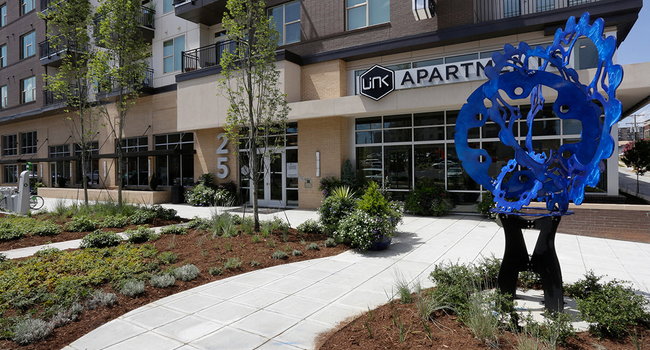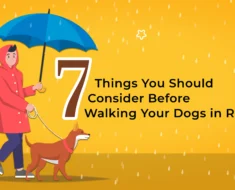Is your dog barking non-stop every time someone walks down the apartment hallway? You’re not alone.
That constant alarm barking can be stressful for you, your neighbors, and your furry friend. But what if you could teach your dog to stay calm and quiet, even when noises come from outside your door? You’ll discover simple, effective ways to stop alarm barking caused by hallway sounds.
Keep reading to bring peace back to your home and enjoy a quieter, happier life with your dog.

Credit: www.reddit.com
Why Dogs Bark At Hallway Noises
Dogs often bark at noises in apartment hallways because they want to protect their home. Their instincts tell them to warntheir owners about possible danger. Sounds like footsteps, voices, or doors opening can make dogs feel alert or scared.
Common triggers include:
- Footstepsechoing in the hallway
- Doors opening or closing
- Voices of neighbors talking
- Sounds of delivery people or visitors
- Other dogs barking nearby
These noises can cause alarm barking. Dogs want to tell you something is happening. This behavior comes from their natural need to protect their space and family.

Credit: www.apartmentratings.com
Identifying Your Dog’s Barking Patterns
Dogs often bark at specific noisesin apartment hallways. These sounds can include footsteps, doors closing, or voices. Watch your dog carefully to find out which noises cause barking. Notice the timewhen barking happens most. Is it morning, afternoon, or night? Check how often your dog barks during these times. Sometimes barking happens a lot in a short time. Other times, it is spread out. Understanding these patterns helps control the barking better. Write down the noises and times to spot a clear pattern. This helps in creating a calm environment for your dog and neighbors.
Training Techniques To Reduce Barking
Positive reinforcementhelps teach dogs to stop barking. Give treats or praise when your dog stays quiet. This encourages good behavior. Start by saying “quiet” in a calm voice when the dog barks.
Once the dog stops barking, give a treat right away. Repeat this many times. The dog learns that quiet means rewards.
Practice this in short sessions. Use the command “quiet” every time your dog barks at hallway noises. Be patient and consistent. Avoid yelling or punishing, as this can make barking worse.
Environmental Changes To Minimize Noise
Soundproofing helps reduce loud noises that make dogs bark. Adding thick rugs or carpets can soften sounds in hallways. Heavy curtains on windows block outside noises effectively. Installing door sweeps stops noise from entering under doors. Foam panels on walls absorb echoes and loud sounds. These small changes create a quieter environment for your dog.
White noise machines or fans produce steady sounds that calm dogs. Playing soft music or nature sounds can distract pets from hallway noises. These sounds mask sudden noises that trigger barking. Keep the volume low to avoid startling your dog. Consistent background noise helps dogs feel safe and relaxed.
Tools And Products To Help Control Barking
Anti-bark collarscan help reduce barking in apartment hallways. These collars work by giving a gentle vibration, sound, or mild spray when the dog barks. They do not hurt the dog but help them learn to stay quiet. Some collars have adjustable settings to fit your dog’s needs.
Interactive toyskeep dogs busy and distracted. Toys like puzzle feeders or chew toys can stop boredom, which often causes barking. Giving your dog a task helps lower their stress and keeps them calm in noisy places.

Credit: snowyriverdoodle.com
Managing Your Dog’s Anxiety
Regular exercisehelps dogs release extra energy. A tired dog is less likely to bark at hallway noises. Short walks, playtime, or fetch games work well.
Mental activities keep dogs busy and calm. Puzzle toys, treat hiding, or training sessions challenge their minds. This reduces stress and anxiety.
Calming supplements like CBD oilor chamomiletreats may soothe nervous dogs. Always check with a vet before use.
Techniques such as gentle massage or deep pressurecan relax your pet. Playing soft music or white noise blocks outside sounds. These methods help your dog feel safe and quiet.
When To Seek Professional Help
Persistent barking may mean professional help is needed. A trainer or behavioristcan observe your dog’s actions closely. They find causesand teach ways to reduce stressand barking. Trainers use positive methodsto help your dog feel calm and safe.
Sometimes, barking links to health problems. A veterinarianchecks for pain or illness causing noise fear. Treating these issues often lowers barkingnaturally. A vet visit ensures your dog’s well-beingis good and helps guide the right care.
Frequently Asked Questions
How Can I Stop My Dog Barking At Hallway Noises?
Train your dog to associate hallway sounds with calmness. Use positive reinforcement and distraction techniques to reduce barking.
Why Does My Dog Bark At Apartment Hallway Sounds?
Dogs bark at hallway noises due to alertness or anxiety. The unfamiliar sounds trigger their natural protective instincts.
What Training Methods Reduce Alarm Barking In Apartments?
Use desensitization and counter-conditioning. Gradually expose your dog to hallway sounds while rewarding calm behavior.
Can Noise-cancelling Tools Help Stop Barking?
Yes, tools like white noise machines or calming collars can reduce barking by masking hallway noises.
Conclusion
Stopping alarm barking takes patience and clear training steps. Create a calm space for your dog in the hallway. Use gentle commands and reward quiet behavior. Avoid yelling, as it can increase stress and barking. Consistency helps dogs learn what you expect from them.
Small changes each day lead to big improvements. Your dog will feel safer and quieter over time. Quiet hallways make apartment living better for everyone. Keep practicing and stay positive throughout the process.





